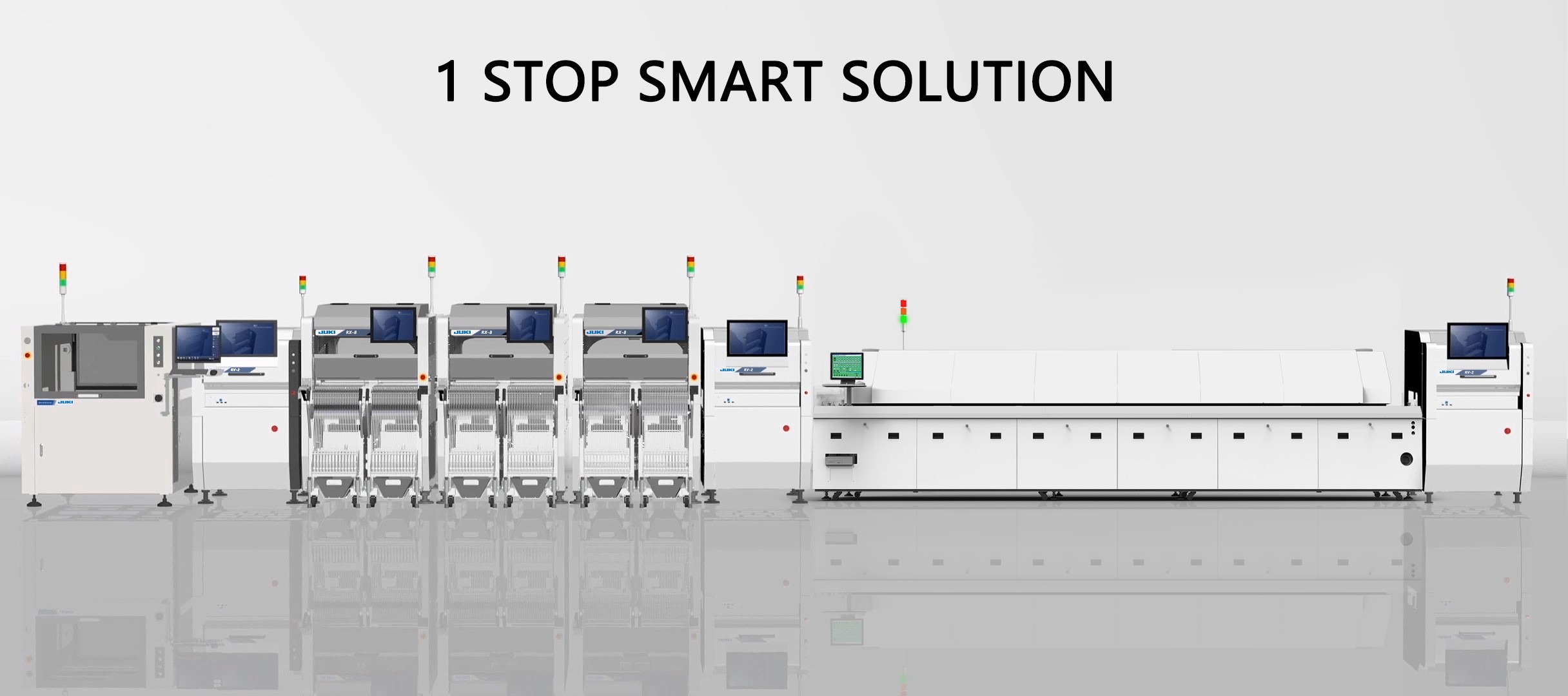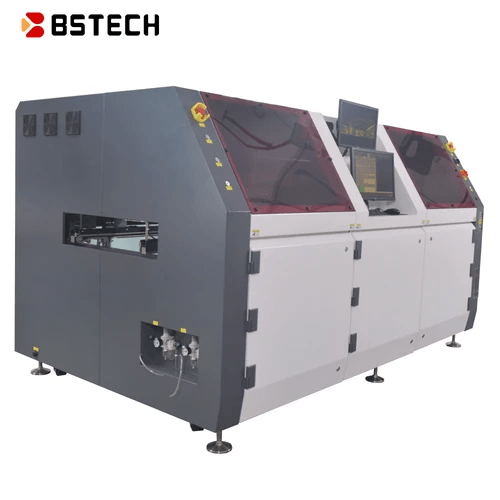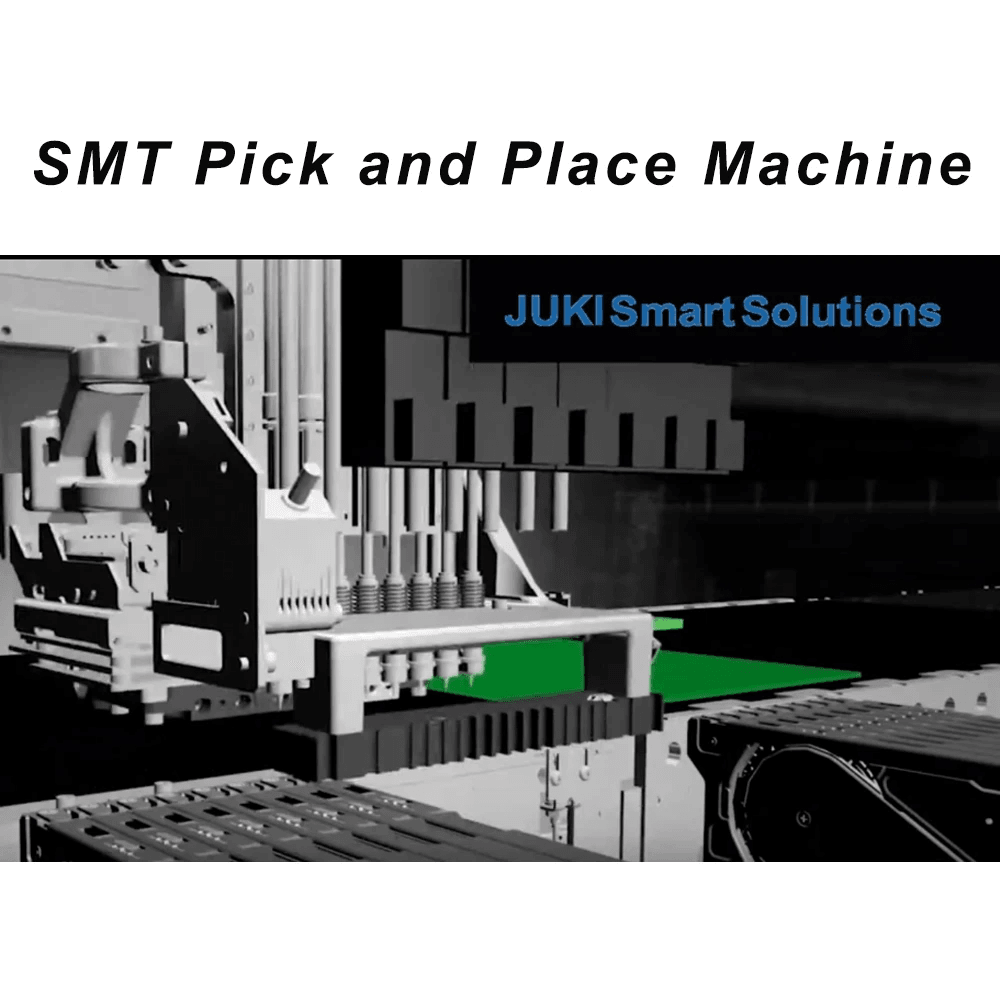Introduction
In the realm of electronics, where precision meets innovation, selective wave soldering machines play a pivotal role in circuit board manufacturing. This advanced technology not only enhances the quality of circuit board components but also streamlines the entire circuit board soldering process. As manufacturers strive for efficiency and reliability, understanding the nuances of selective wave soldering becomes essential.
Understanding Selective Wave Soldering
Selective wave soldering is a specialized technique designed to efficiently solder specific areas of a printed circuit board (PCB) without affecting other components. Unlike traditional methods that immerse entire boards in molten solder, this approach targets only designated spots, ensuring minimal thermal stress on sensitive parts. This precision makes selective wave soldering an ideal choice for complex assemblies that require meticulous attention to detail.
Importance in Circuit Board Manufacturing
The significance of selective wave soldering in circuit board manufacturing cannot be overstated; it directly influences the durability and performance of electronic devices. By ensuring strong and reliable connections among circuit board components, this method reduces the likelihood of defects and failures during operation. Consequently, manufacturers can deliver high-quality products while maintaining competitive production timelines.
How Bensun Innovates the Process
Bensun stands at the forefront of innovation in wave soldering equipment, offering cutting-edge solutions that redefine industry standards. Their selective wave soldering machines incorporate advanced features such as precise flux application and dual soldering stations to enhance efficiency and output quality. With Bensun's commitment to continuous improvement, they are transforming how manufacturers approach circuit board soldering challenges.
What is a Selective Wave Soldering Machine?

Selective wave soldering machines are specialized devices designed to solder electronic components onto circuit boards with precision and efficiency. This technique allows for the targeted application of solder to specific areas, making it ideal for complex circuit board manufacturing where only certain components require soldering. Unlike traditional methods, selective wave soldering minimizes the risk of damaging sensitive parts and improves overall production quality.
Definition of Selective Wave Soldering
Selective wave soldering refers to a process where a wave of molten solder is directed toward specific circuit board components, allowing for precise connections without affecting the entire board. This method is particularly beneficial for through-hole components that need to be securely attached while minimizing thermal stress on surrounding parts. By using a selective wave soldering machine, manufacturers can achieve high-quality joints with reduced defects, ensuring reliable performance in electronic devices.
Comparison with Other Soldering Techniques
When compared to other soldering techniques such as reflow or hand soldering, selective wave soldering stands out due to its efficiency and precision. While reflow is great for surface mount technology (SMT) applications, it often requires extensive pre-assembly processes that can slow down production. Hand soldering may offer flexibility but lacks the speed and consistency provided by automated wave soldering equipment; hence, selective wave machines become indispensable in high-volume circuit board manufacturing.
Role in Circuit Board Soldering
In the realm of circuit board soldering, selective wave soldering machines play a critical role by enhancing both the quality and reliability of assembled products. These machines excel at integrating various types of circuit board components seamlessly into one cohesive unit while ensuring that each connection is robust and durable. As manufacturers continue to push for higher standards in electronics, adopting advanced technologies like selective wave soldering becomes essential for maintaining competitive edge in the market.
Key Features of High Performance Machines

In the realm of circuit board manufacturing, high-performance machines are essential for achieving optimal results. Selective wave soldering machines stand out due to their innovative features that enhance the quality and efficiency of circuit board soldering. Let’s dive into some key aspects that make these machines a must-have for any serious operation.
Preheating Systems Explained
Preheating systems in selective wave soldering machines play a crucial role in preparing circuit board components for the soldering process. By gradually raising the temperature of the components, these systems help reduce thermal shock and ensure better adhesion of the solder. This not only improves the quality of the solder joints but also minimizes defects during production, making it an indispensable feature in wave soldering equipment.
Precision in Flux Application
Precision in flux application is another hallmark of high-performance selective wave soldering machines. The right amount and placement of flux are vital for ensuring strong and reliable connections between components on a circuit board. With advanced flux application technologies, these machines can accurately dispense flux only where needed, reducing waste and enhancing overall efficiency during circuit board manufacturing.
Dual Soldering Stations Benefits
One standout feature of certain selective wave soldering machines is their dual soldering stations, which significantly boost productivity. Having two stations allows simultaneous processing, cutting down on cycle times and enabling manufacturers to handle larger volumes without sacrificing quality. This capability is particularly beneficial when working with various types of circuit board components that require different soldering techniques, such as through-hole or SMT solder applications.
Advantages of Selective Wave Soldering

Selective wave soldering is a game-changer in circuit board manufacturing, offering numerous advantages that set it apart from traditional methods. Its ability to enhance the quality of circuit board components, improve efficiency and speed, and provide cost-effectiveness makes it an ideal choice for modern electronics production. As we delve into these benefits, you'll see why investing in a selective wave soldering machine can elevate your manufacturing process.
Enhanced Quality of Circuit Board Components
One of the standout features of a selective wave soldering machine is its capacity to deliver superior quality in circuit board components. By precisely controlling the soldering process, manufacturers can ensure that each connection is robust and reliable, reducing the likelihood of defects. This meticulous approach not only enhances the overall durability of the circuit boards but also minimizes issues related to SMT solder and through-hole connections.
Moreover, selective wave soldering significantly reduces thermal stress on sensitive components during circuit board soldering. This leads to fewer cold joints or other defects often associated with less controlled methods. The end result? A product that meets high-quality standards and performs reliably in various applications.
Improved Efficiency and Speed
In today's fast-paced manufacturing environment, efficiency is king—and selective wave soldering delivers just that. With advanced automation features integrated into modern wave soldering equipment, processes are streamlined to minimize downtime while maximizing output. This means manufacturers can produce more circuit boards in less time without sacrificing quality.
Additionally, the dual soldering stations found in many high-performance machines allow simultaneous processing of multiple boards or components. This boost in productivity translates directly into faster turnaround times for clients and improved service levels across the board—pun intended! Ultimately, improved efficiency leads to higher throughput and greater competitiveness in the market.
Cost-Effectiveness in Manufacturing
When it comes to manufacturing budgets, every penny counts—and that's where selective wave soldering shines brightly! The precision offered by these machines minimizes waste by using exactly the right amount of SMT solder needed for each joint, cutting down on excess material costs significantly. Furthermore, by enhancing component quality and reducing defects, manufacturers can avoid costly rework or replacements down the line.
In addition to material savings, operational efficiencies translate into lower labor costs as well; automated processes require fewer hands-on interventions compared to traditional methods like manual through-hole soldering. Over time, this combination results in a remarkable reduction in overall production costs while maintaining high standards of quality—making it an attractive option for businesses looking to maximize their return on investment.
The Role of Nitrogen in Soldering

In the world of circuit board manufacturing, nitrogen plays a pivotal role in enhancing the quality and reliability of solder joints. The use of nitrogen during the soldering process, particularly with selective wave soldering machines, creates a controlled environment that significantly reduces oxidation. This is crucial for maintaining the integrity of circuit board components and ensuring optimal performance in electronic devices.
Benefits of Nitrogen Protection
One of the primary benefits of nitrogen protection in wave soldering equipment is its ability to displace oxygen, which can lead to oxidation and defects in solder joints. By creating an inert atmosphere, nitrogen helps preserve the quality of SMT solder used during the process, resulting in stronger and more reliable connections between components. Additionally, this protective measure can extend the lifespan of circuit board manufacturing processes by reducing rework and scrap rates associated with poor-quality solder joints.
Impact on Solder Joint Quality
The impact of nitrogen on solder joint quality cannot be overstated; it directly correlates with enhanced electrical conductivity and mechanical strength. When using a selective wave soldering machine equipped with nitrogen systems, manufacturers often observe fewer defects such as voids or cracks within their circuit board components. This improvement not only boosts product reliability but also contributes to overall efficiency by minimizing downtime caused by faulty assemblies.
Integration in Bensun's Machines
Bensun has ingeniously integrated nitrogen protection into its advanced wave soldering machines, setting a new standard for circuit board soldering excellence. Their equipment features sophisticated systems that monitor and control nitrogen levels throughout the process, ensuring optimal conditions are maintained at all times. By prioritizing this technology, Bensun enhances both the performance and durability of their machines while delivering superior results for manufacturers looking to elevate their production capabilities.
Choosing the Right Wave Soldering Equipment

Selecting the right wave soldering equipment is crucial for circuit board manufacturing, ensuring that your circuit board components are assembled efficiently and effectively. With various options available, it’s essential to consider specific factors that can impact the quality of your soldering process. From machine capabilities to user-friendliness, making an informed choice will lead to better outcomes in your circuit board soldering operations.
Factors to Consider When Selecting Equipment
When diving into the world of selective wave soldering machines, several factors should guide your decision-making process. First and foremost, evaluate the types of circuit board components you’ll be working with; different machines cater to varying sizes and configurations, especially when it comes to through-hole and SMT (Surface Mount Technology) soldering. Additionally, consider the machine's capacity for preheating systems and flux application precision—these features can significantly enhance the quality of your solder joints.
Another critical aspect is the machine's adaptability to future needs; investing in a wave soldering machine that allows for upgrades or modifications can save you time and money down the line. Don’t forget about ease of use—an intuitive interface can make a world of difference in training new operators and maintaining consistent output quality. Lastly, assess the level of customer support offered by manufacturers; having reliable assistance can alleviate potential headaches during operation.
Bensun Technologies and Offerings
Bensun stands out in the realm of wave soldering equipment by providing innovative solutions tailored for modern circuit board manufacturing challenges. Their selective wave soldering machines come equipped with advanced features like dual soldering stations that enhance efficiency while maintaining high standards in component assembly. Bensun also offers customizable options that allow businesses to adapt their machines according to specific production requirements.
Moreover, Bensun’s commitment to integrating nitrogen protection systems into their machines ensures optimal conditions for creating high-quality solder joints while minimizing oxidation risks during operation. With a focus on precision engineering, their equipment is designed not only for performance but also for longevity—making them a smart investment for any manufacturing facility looking to streamline its processes effectively.
Maintenance Tips for Longevity
To ensure that your selective wave soldering machine remains at peak performance over time, implementing regular maintenance practices is essential. Start by keeping all components clean; residue buildup from flux or other materials can affect both functionality and product quality in circuit board manufacturing processes. Regularly inspect key parts such as pumps and nozzles to prevent clogs that could disrupt smooth operation during critical moments.
Additionally, establish a routine schedule for calibrating your equipment; this will help maintain accuracy across all functions including flux application precision and temperature control during wave soldering processes. Finally, don’t overlook documentation—keeping detailed records of maintenance activities enables you to track performance trends over time which can be invaluable when troubleshooting issues or planning upgrades on your wave soldering equipment.
Conclusion
In conclusion, the selective wave soldering machine has revolutionized the circuit board manufacturing landscape, enhancing both efficiency and quality. By utilizing advanced techniques in circuit board soldering, manufacturers can achieve superior results with their circuit board components. As we look toward the future, it’s clear that selective wave soldering will continue to play a pivotal role in elevating production standards.
Elevating Circuit Board Manufacturing Process
The integration of a selective wave soldering machine into the manufacturing process significantly enhances the overall quality of circuit board components. This technology not only streamlines operations but also improves precision in soldering through hole connections and surface mount technology (SMT solder). Consequently, manufacturers are better equipped to meet rising demands for high-performance electronic devices while maintaining cost-effectiveness.
Future of Selective Wave Soldering Technology
Looking ahead, the future of selective wave soldering technology appears promising as innovations continue to emerge. With ongoing advancements in wave soldering equipment, we can expect enhanced capabilities that further improve efficiency and reduce waste during production processes. The incorporation of smart technologies and automation will likely redefine how circuit board manufacturing is approached, making it an exciting time for industry players.
Why Bensun is Your Go-To Provider
When it comes to selecting a partner for your circuit board manufacturing needs, Bensun stands out as a premier provider of cutting-edge equipment like the selective wave soldering machine. Their commitment to quality ensures that every piece of wave soldering equipment meets rigorous standards while providing exceptional performance for your circuit board components. With Bensun's expertise and innovative solutions at your disposal, you can confidently navigate the complexities of modern circuit board soldering.
